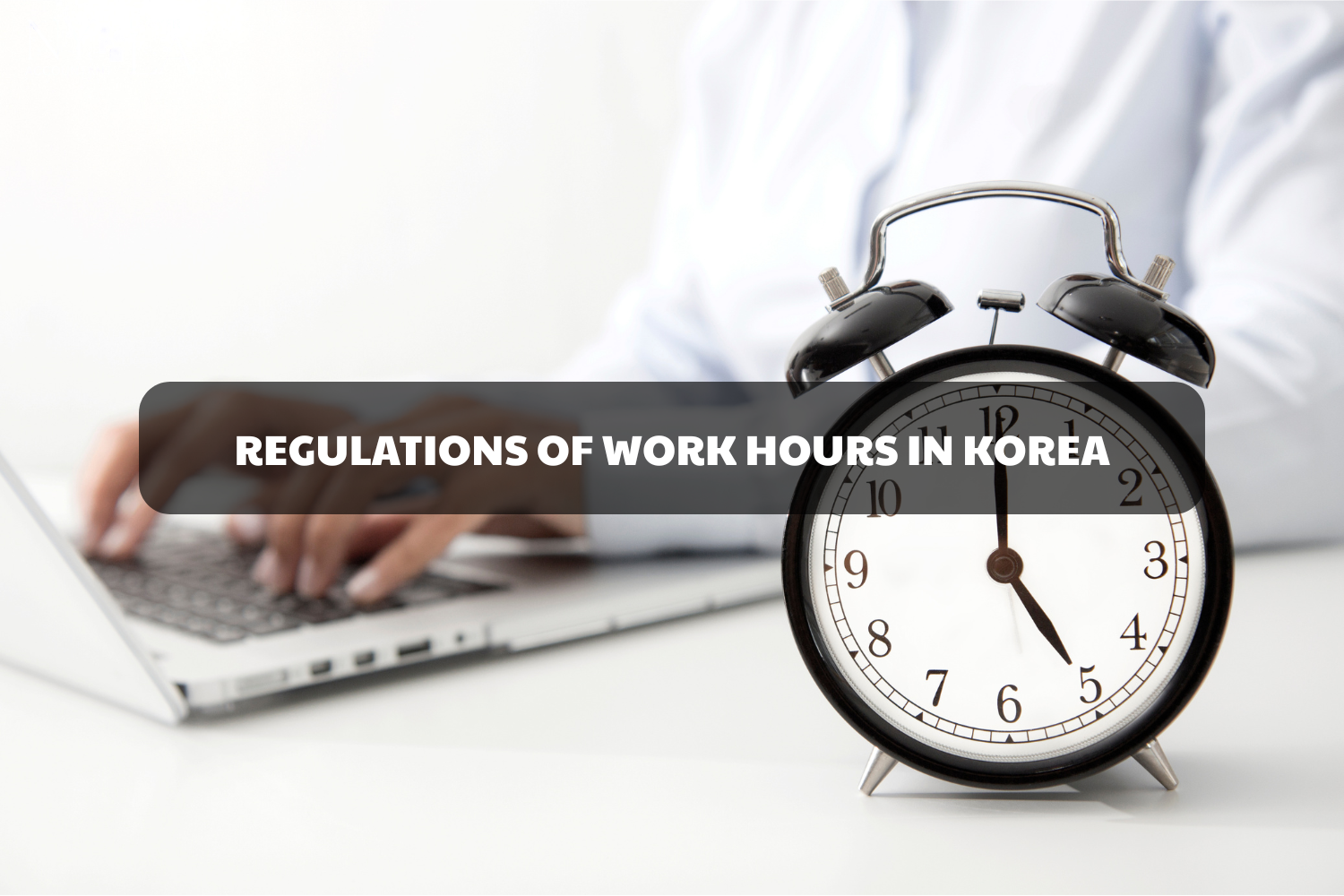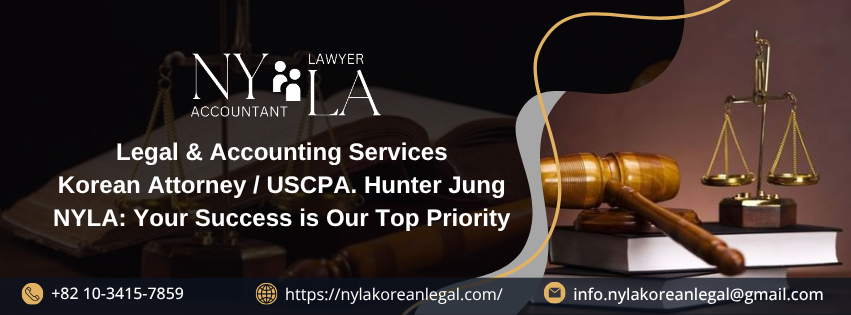Understanding the work hours in Korea is essential for both employers and employees operating within the country. Governed primarily by the Labor Standards Act, Korean law strictly regulates standard working hours, extended work hours, and rest periods to ensure workers’ rights and promote healthy work environments. This article will provide a comprehensive overview of the current legal framework regarding work hours in Korea, including how they can be extended and the mandatory break time regulations.
Summary
- 1. Legal Framework for Work Hours in Korea
- 2. Standard Work Hours in Korea
- 3. Extending Work Hours in Korea
- 4. Rest Periods and Break Time Regulations in Korea
- 5. Flexible Working Hours in Korea
- 6. Overtime Pay and Compliance Requirements
- 7. Importance of Understanding Work Hours in Korea
- 8. Conclusion: Navigating Work Hours in Korea with Confidence
- 9. About NYLA – Korean Legal Office
1. Legal Framework for Work Hours in Korea
The legal basis for work hours in Korea is found in the Labor Standards Act, which outlines the rights and responsibilities of employers and employees regarding working time, rest periods, and overtime. This law applies to most workplaces in Korea, with few exceptions such as government institutions or special labor categories.
Under Article 50 of the Labor Standards Act, work hours shall not exceed 40 hours per week and 8 hours per day, excluding recess hours. Any time that employees are required to be present at the workplace under the employer’s instruction—such as waiting or standby time—is counted as working time.
2. Standard Work Hours in Korea
In practice, the standard work hours in Korea are limited to 8 hours a day and 40 hours a week. These limits are set to protect workers from overwork and ensure a proper work-life balance. Work done beyond these hours is considered overtime and is subject to different regulations, including additional pay and required agreements.
Employers must be cautious when calculating work hours, ensuring that even non-active periods like standby time are counted as part of total work hours if employees are under the supervision or control of the employer.
3. Extending Work Hours in Korea
While standard work hours in Korea are fixed, the law allows for some flexibility under specific conditions. Employers can extend work hours on a given day or average them over a week, provided that the total work hours do not exceed 48 hours per week during any two-week period.
However, to extend beyond this, a written agreement must be made with the employee representative. With such an agreement, employers can further extend working time under these conditions:
- Maximum 52 hours per week.
- No more than 12 hours of extended work per day.
- The unit period for averaging must not exceed 3 months.
- The agreement must detail the affected employees, the unit period, specific workdays and hours, and any other relevant legal requirements.
It’s important to note that certain vulnerable groups are excluded from extended work hours, such as employees aged 15 to 18 years old and pregnant women, who are protected by special labor provisions.

4. Rest Periods and Break Time Regulations in Korea
Korean labor law also mandates rest periods within the workday to ensure employee wellbeing. According to Article 54 of the Labor Standards Act:
- Employees working more than 4 hours must receive at least 30 minutes of rest.
- Employees working more than 8 hours are entitled to at least 1 hour of rest.
These recess periods must be provided during work hours, and employees have the freedom to use their break time as they wish. Employers are encouraged to clearly define break times in employment contracts or internal labor policies to avoid disputes.
5. Flexible Working Hours in Korea
To adapt to modern business needs, Korean labor law allows for flexible work arrangements, including flextime and shift work. However, these must still comply with the overarching limits on work hours in Korea unless specific agreements are reached.
Flexible work schedules are especially useful in industries like IT, logistics, or media, where workloads fluctuate. Employers must ensure that such arrangements are legally documented and agreed upon with employee representatives to avoid potential violations.
6. Overtime Pay and Compliance Requirements
Overtime work—any work performed beyond the legal work hours in Korea—must be compensated. Employers are obligated to pay at least 150% of the ordinary wage for overtime hours. Failure to comply may result in fines, labor audits, or legal disputes.
To remain compliant, companies should:
- Track working hours accurately.
- Retain all agreements on extended hours.
- Document rest periods.
- Educate HR and management teams on labor law updates.
7. Importance of Understanding Work Hours in Korea
Foreign companies operating in Korea must have a thorough understanding of work hours in Korea to align with local labor standards and build a responsible employer brand. Non-compliance not only leads to penalties but also affects employee morale and organizational reputation.
Legal consultation and routine HR audits are advisable to navigate the complex labor framework effectively. Proper knowledge of working hours regulations in Korea enables foreign employers to plan operations better and manage risks.
In summary, the legal limits and flexibility of work hours in Korea are well-defined by the Labor Standards Act. Employers must carefully manage daily and weekly work hours, honor rest time regulations, and formalize any extended working time through written agreements.
By staying compliant with Korean labor laws, businesses can promote a healthy work culture, improve productivity, and avoid legal complications. Whether you are setting up a new company in Korea or managing a large workforce, understanding and respecting Korea’s work hours regulations is a critical step toward sustainable success.
For further legal support on labor compliance in Korea, consider consulting with a local legal expert experienced in employment law.
9. About NYLA – Korean Legal Office

■ NYLA – Your Trusted Legal Partner in Korea
At NYLA, we understand that the success of foreign businesses in Korea requires not only a solid business strategy but also reliable legal support. With a team of experienced Korean attorneys and legal professionals, NYLA provides tailored legal services for companies, investors, and individuals operating or planning to establish a presence in Korea.
We support our clients throughout the entire business journey with comprehensive services, including:
- Legal consultation on company establishment, taxation, and immigration;
- Advice on commercial real estate, franchising, and product distribution;
- Support in human resources, marketing, and business strategy.
In addition to legal advisory, NYLA also represents clients in civil litigation cases related to business, labor, marriage, family, and inheritance to ensure their rights and interests are fully protected.
■ Contact NYLA

If you’re a foreign business or individual looking for a reliable legal partner in Korea, NYLA is here to help. We are committed to delivering effective, practical, and personalized legal solutions for every client.
With a proven track record of assisting hundreds of international clients, our team is equipped to help you navigate complex legal challenges—whether it’s commercial disputes, contract issues, or foreign investment guidance.
Don’t let legal matters hold you back. Let NYLA be your trusted guide in the Korean market.
■ Get in touch with NYLA for expert legal support
| Website: https://nylakoreanlegal.com/
FB: https://www.facebook.com/nyla.koreanlegal Tiktok: https://www.tiktok.com/@nylakoreanlegal Youtube: https://www.youtube.com/@NYLA-xd8qx Email: info.NYLAkoreanlegal@gmail.com SĐT: +82 10-3415-7859 |
 |






















































